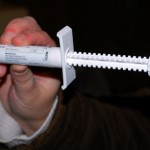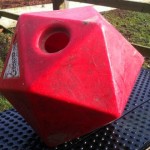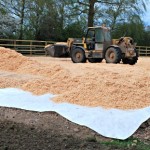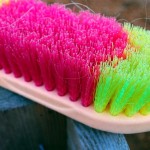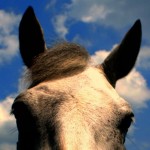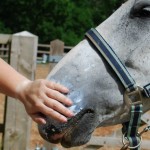Wolf Teeth
How can something so small cause so much of a problem?
My two year old has just had her Wolf Teeth out. According to the vet they were the biggest wolf teeth she’d seen in ages in a horse – to a normal human they looked dinky.
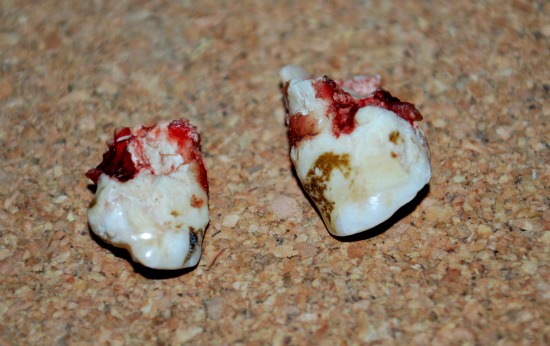
When you compare them to the rest of a horses mouth they are relatively small teeth. Some horses don’t get them at all, some are born with them already grown, some come through later and others drop out when a horses caps (baby teeth) fall out.
Modern thinking is that there is no place for wolf teeth in a horse that will be bitted. Basically where the bit rests is where these teeth pop up, making them uncomfortable for the horse. They can appear both on the top and the bottom, although sometimes one and not the other.
There are a lot of problems that can be caused by a sore mouth. Head-shaking and not accepting a contact are the most obvious, but it can affect the whole body. The horse can become tense in the neck, which transfers to the back and hip – it makes them reluctant to become soft and can end up with painful muscles. This in turn can lead to bucking, hollowness, bolting, refusing to go forward, general grumpyness and lack of co-operation.
Some people don’t believe in taking their horses wolf teeth out, others grind the tops of them to save removing them. If you can remove them though I always would.
Because it involved sedation I got the vet to do it rather than an equine dentist. Basically the vet came and sedated the horse, it took literally less than a minute for the sedation to kick in. The gag was then put on the horse and the teeth removed. This did involve a bit of digging out prior to extraction. The horse was then left to come round in her own time in her stable. There was very little blood, no drama and my mare seemed unbothered by the whole thing. The vet suggested she wasn’t bitted again for at least another 11 days in order to give her mouth time to heal.

